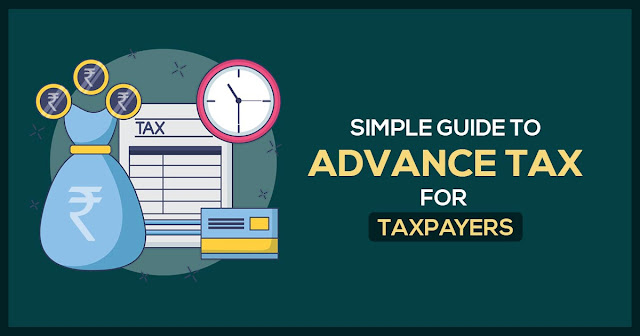Advance tax under I-T act 1961 is a tax that needs to be paid upfront on anticipated revenue, as opposed to regular tax, which is paid at the end of the fiscal year. The basics of advance tax, including how to calculate and pay it, will be covered in this essay.
What Does the Term Advance Tax Specify?
Instead of paying the entire tax bill at the end of the fiscal year, advance tax is a tax on anticipated income that is paid in advance. As it requires taxpayers to estimate their income and pay tax on it as they earn it, it is frequently referred to as the "pay-as-you-earn" tax.
If their tax liability for the fiscal year exceeds Rs. 10,000, all individuals, including salaried employees, independent contractors, and business owners, are liable for advance tax. On the other hand, senior citizens who are not employed by a business or profession are exempt from paying advance tax.
Why Advance Tax is Important?
Advance tax is essential because it enables the government to collect tax revenue more throughout the year as opposed to at the end. Spreading out their tax obligations over the course of the year rather than paying it all at once at the conclusion of the fiscal year helps people and businesses better manage their budgets. Advance tax penalties & interest for non-payment or late payment, which can be avoided if the tax is paid on time.
How is the Advance Tax Calculated Easily?
Estimating your taxable income for the fiscal year is the first step in calculating the advance tax. This includes all sources of income, including salaries, dividends, interest, rental income, capital gains, and profits from businesses.
After determining your taxable income, use the current income tax rates and slabs to calculate your tax owed for the year. You may assess your tax burden using an online tax calculator or by seeing a tax consultant.
If you got income tax deducted at source (TDS), you can subtract it from your tax liability. TDS on salary, interest income, and other TDS-eligible payments are included.
Your net tax liability for the year will be calculated after subtracting TDS from your tax liability. You may then determine your advance tax liability using the Income Tax Department's due dates and payment percentages.
To pay advance tax, split the computed advance tax amount into four payments, according to the Income Tax Department's due dates. Advance tax payments are typically due on the 15th of June, 15th of September, 15th of December, and 15th of March. The typical installment amounts are 15%, 45%, 75%, and 100% of the advance tax liability. According on your convenience, you can pay the advance tax in whole or in installments.
The Process of the Advance Tax Payment
For paying advance tax, there are numerous options available, including:
- Cash payment at designated banks
- Cheque payment at designated banks
- Online payment through net banking
- Online payment through debit or credit cards
- National Electronic Fund Transfer (NEFT)
- Real-Time Gross Settlement (RTGS)
There are two ways to submit Challan 280 online and offline, in order to pay advance tax. Your name, address, PAN, assessment year, kind of tax, bank name, and the amount of tax due are among the details on this form. You must either pay online after filling out the form or return it to the chosen bank with the money.
On the Income Tax Department's website, you can use net banking or a debit or credit card to make an online advance tax payment. Before selecting the kind of tax as "Advance Tax," you must first choose the proper assessment year and enter your PAN. After that, you may choose a payment option and enter the amount of tax that has to be paid.
The failure to pay advance tax on time or the payment of less than the specified amount, you would be subject to a penalty under Income Tax Act Sections 234B and 234C. For the overdue amount, the penalty is normally applied at the rate of 1% every month or part thereof. In addition, interest at the rate of 1% per month or part thereof may be levied on the outstanding tax due. To prevent fines and interest, it is critical to pay advance tax on time.
Read also: Easy Guide to Advance Tax with Payment Calculation Due Dates
Final Thoughts
Individuals and companies must pay advance tax as part of their tax obligations. You may plan your budget and prevent late or non-payment penalties by comprehending the foundations of advance tax.


Comments
Post a Comment